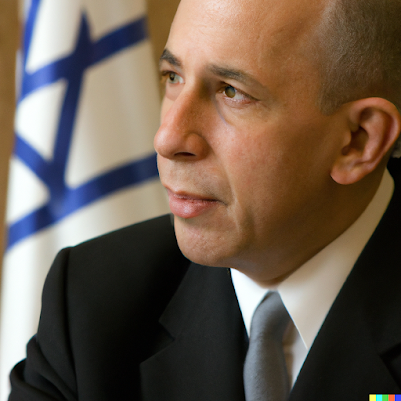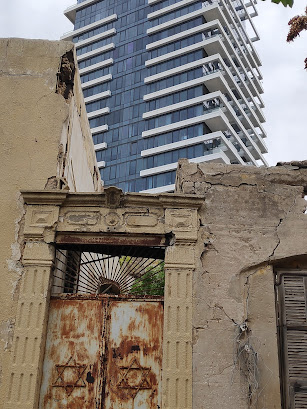Herzl won
 This is a photo of (part of) the outside of a bar situated at 1 Herzl St, a few minutes walk from the rooftop. The first time I saw it I smiled at the irony of Theodor Herzl, hozeh ha-medina (the visionary of the state) as the name for pick-up bar. But after all, this is sardonic Tel Aviv where all sacred cows have long been slaughtered . And also after all, what does Herzl mean to young people nowadays. At best, he might ring a bell as a vague symbol of someone who promoted the idea of a Jewish state. Nobody however actually reads his works nowadays and even if they did, his ideas about a utopian European-type Jewish-international state would sound as though they belonged to another planet. I was therefore intrigued - and a bit shocked, to notice that on another part of the facade of the bar - which seems to have been copied from an encyclopedia entry on Herzl , the designers had chosen to include this text:
This is a photo of (part of) the outside of a bar situated at 1 Herzl St, a few minutes walk from the rooftop. The first time I saw it I smiled at the irony of Theodor Herzl, hozeh ha-medina (the visionary of the state) as the name for pick-up bar. But after all, this is sardonic Tel Aviv where all sacred cows have long been slaughtered . And also after all, what does Herzl mean to young people nowadays. At best, he might ring a bell as a vague symbol of someone who promoted the idea of a Jewish state. Nobody however actually reads his works nowadays and even if they did, his ideas about a utopian European-type Jewish-international state would sound as though they belonged to another planet. I was therefore intrigued - and a bit shocked, to notice that on another part of the facade of the bar - which seems to have been copied from an encyclopedia entry on Herzl , the designers had chosen to include this text:“We must expropriate gently the private property on the state assigned to us. We shall try to spirit the penniless population over the border by procuring employment or it in the transit countries by denying it employment in our country. The property owners will come over to our side. Both the process of expropriation and the removal of the poor must be carried out discretely and circumspectly. Let the owners of the immoveable property believe that they are cheating us, selling us things for more than they are worth but we are not going to sell them anything back.”
Wickipedia adds:
In his diary he wrote that land in Palestine was to be gently expropriated from the Palestinian Arabs and they were to be worked across the order /"unbemerkt" (surreptitiously), e.g. by refusing them employment.[6]
Herzl's draft of a charter for a Jewish-Ottoman Land Company (JOLC) gave the
JOLC the right to obtain land in Palestine by giving its owners comparable land
elsewhere in the Ottoman empire. According to Walid Khalidi this indicates Herzl's "bland assumption of the transfer of the Palestinian to make way for the immigrant colonist."[7]



Comments